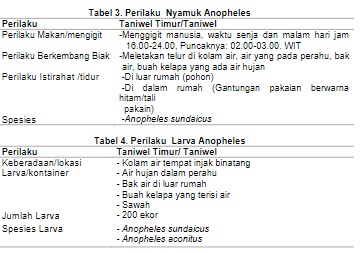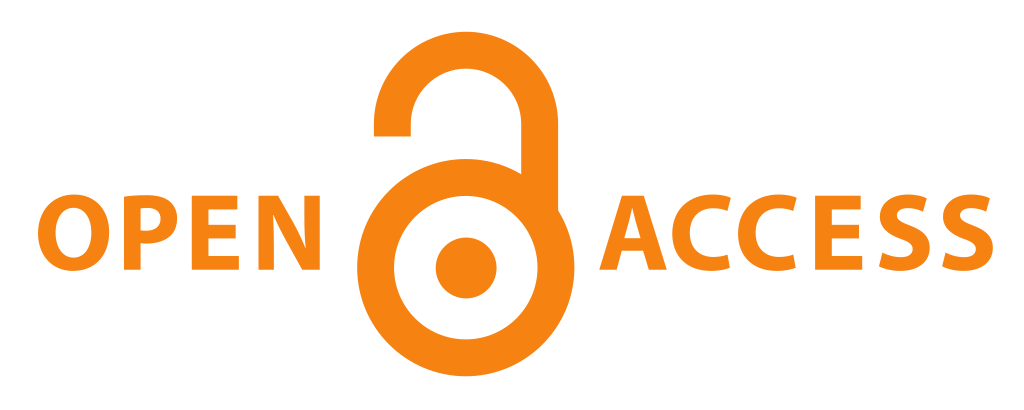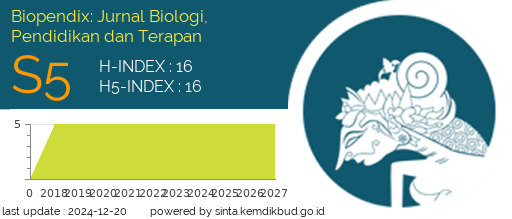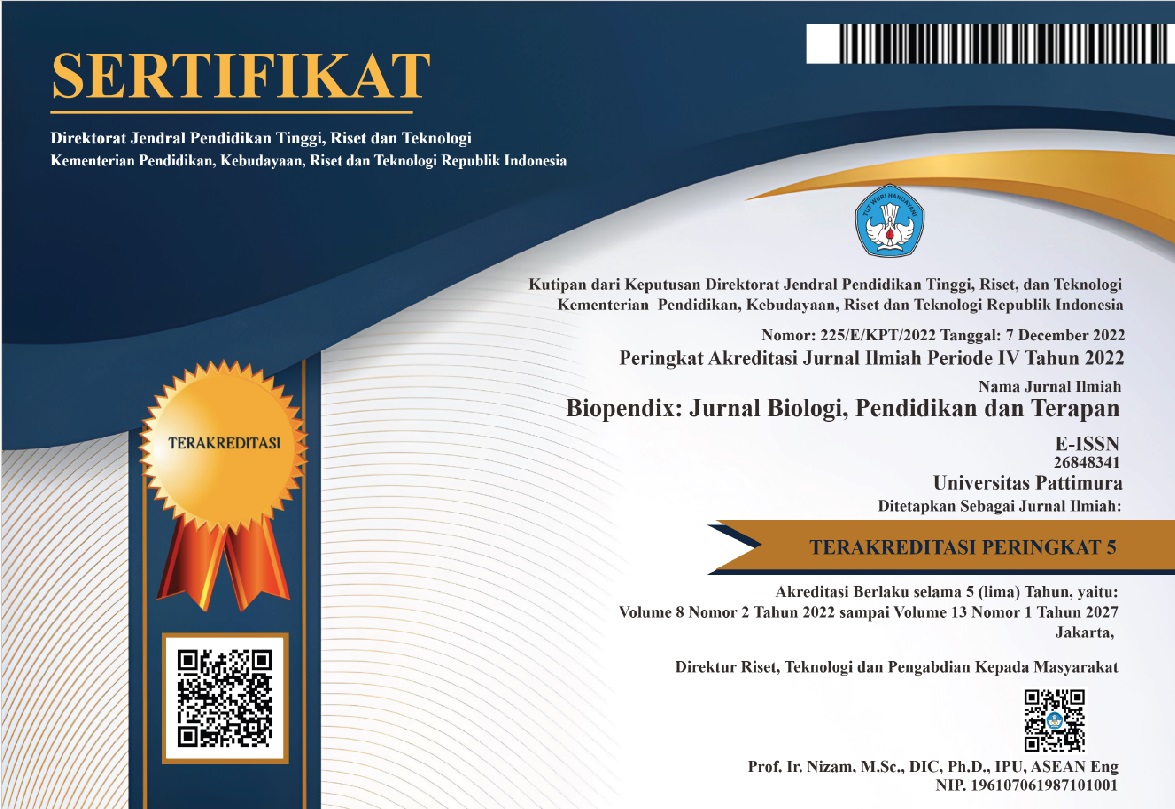PERILAKU NYAMUK MANSONIA DAN ANOPHELES SERTA HUBUNGANNYA DENGAN PENYAKIT FILARIASIS DI KECAMATAN TANIWEL TIMUR DAN TANIWEL KABUPATEN SERAM BAGIAN BARAT
Abstract
Background: Mansonia mosquitoes are in endemic forest and swamp areas, dirty environments and
unused fish farming areas, Mansonia mosquitoes are aggressive and suck blood when humans are at night,
outside the home. Anopheles actively seeks blood during illness and at night.
Methods: This research uses survey and cross sectional research, it discusses to study mosquitoes, the
density of mosquitoes mansonia and anopheles, as well as looking at the development of disease
(prevalence) of filariasis. The population in this study is the population and population of mosquito mansonia
and anopheles in East Taniwel and Taniwel Districts. Filariasis in Taniwel and East Taniwel Sub-districts,
West Seram District was reported in local health centers of around 15 people. The outbreak of filariasis in
Taniwel District around 2010-2019.
Result: Mansonia mosquitoes bleeds people at home when sick at 18: 00-18: 45. While outside the house
at night 20: 00-20: 45. While Anopheles mosquitoes bite humans, at dusk and at night at 16.00-24.00, The
peak is 02.00-03.00. The density of mansonia mosquitoes in Sohuwe Village, 4.00 - 5.85, Lumalatal 5.00 -
6.60 and Maloang 4.00-5.50 (moderate), Anopheles in Sohuwe 7.00-9.85, Lumalatal 5.89- 6.82, Maloang
5.00-6.50 (high).
Conclusion: The prevalence of filariasis in Sohuwe 0.66, Lumlat 0.88. and Maloang 1.54. There is a
relationship between attitudes and community relations with filariasis.
Downloads

Authors who publish with this Journal agree to the following terms:
- Author retain copyright and grant the journal right of first publication with the work simultaneously licensed under a creative commons attribution license that allow others to share the work within an acknowledgement of the work’s authorship and initial publication of this journal.
- Authors are able to enter into separate, additional contractual arrangement for the non-exclusive distribution of the journal’s published version of the work (e.g. acknowledgement of its initial publication in this journal).
- Authors are permitted and encouraged to post their work online (e.g. in institutional repositories or on their websites) prior to and during the submission process, as it can lead to productive exchanges, as well as earlier and greater citation of published works




 2
2






